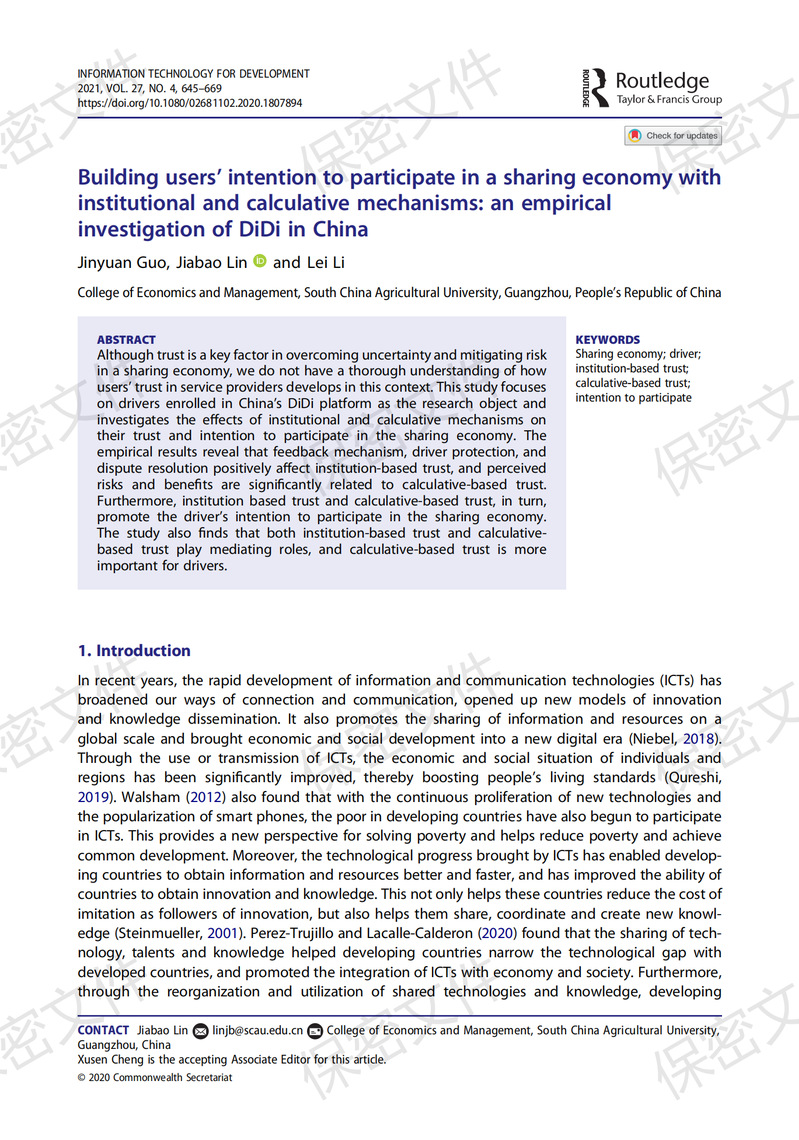出版时间: OCT 2 2021 卷: 27 期: 4
DOI: 10.1080/02681102.2020.1807894
摘 要
Although trust is a key factor in overcoming uncertainty and mitigating risk in a sharing economy, we do not have a thorough understanding of how users' trust in service providers develops in this context. This study focuses on drivers enrolled in China's DiDi platform as the research object and investigates the effects of institutional and calculative mechanisms on their trust and intention to participate in the sharing economy. The empirical results reveal that feedback mechanism, driver protection, and dispute resolution positively affect institution-based trust, and perceived risks and benefits are significantly related to calculative-based trust. Furthermore, institution based trust and calculative-based trust, in turn, promote the driver's intention to participate in the sharing economy. The study also finds that both institution-based trust and calculative-based trust play mediating roles, and calculative-based trust is more important for drivers.
关键词
Sharing economy; driver; Institution-based trust; Calculative-based trust; Intention to participate

基金资助:
This work was supported by the grants from the National Natural Science Foundation of China [grant number 71873047, 71501078], a grant from the National Social Science Fund of China [grant number 19ZDA115], a grant from the Soft Science Foundation of Guangdong Province [grant number 2019A101002099], a grant from the Soft Science Foundation of the Ministry of Agriculture and Rural Affairs of China [grant number RKX2019030B], and a grant from the Special Research Foundation of the Ministry of Education of Guangdong Province [grant number 2020KZDZX1041].
责任编辑:董晓玲
审 定:黄 松